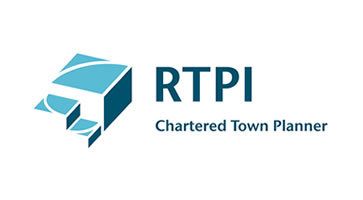Amber Valley Borough Council have been successful in defending their decision to refuse a full planning application for a major solar farm on the outskirts of Alfreton, Derbyshire. The Appellant (a subsidiary company of Kronos) took the refused application to appeal via a public inquiry where a government planning inspector ultimately determined that it was correct to refuse the application and dismissed the appeal.
What development was proposed for Alfreton Solar Farm?
It was proposed to develop the Site into an array of free-standing solar panels and associated infrastructure, to generate just under 50MW of electricity. Following submission of the application and subsequent comments, the Appellant reduced the physical extent of the scheme from c.105 to c.75 hectares. However, the reduction in site area did not reduce the overall electrical output, which remains at just under 50MW (49.9MW) of electricity. 50MW is the threshold for a “nationally significant infrastructure project” within the Planning Act 2008 which meant that the application would have been determined by the Government and not the Local authority.
What was the process to refuse the application for a Solar Farm at Alfreton?
The application was heard at the Planning Board meeting held on Monday 6th December 2021. Following representations made by members of the public, Alfreton Park Community Special School, the applicant’s agent and other interested parties the application was unanimously refused by members of the Planning Board.
Following this, the applicant pursued an appeal against the Local Planning Authorities Decision to refuse the application and a public inquiry was held in The Post Mill Centre in South Normanton for a total of 6 days which included a site visit. Many members of the public were present throughout and were given opportunity for their individual and collective case against the development to be heard.
Why was Alfreton Solar Farm refused?
Careful site selection and design is the best way to avoid or minimise potential adverse landscape and visual impacts arising from solar development. In this case, the sensitivity of the location for large scale ground mounted solar PV was fundamental to the decision to refuse planning permission for the solar farm.
The proposed site was not within a designated landscape, but was in an historic parkland site recognised as a non-designated heritage asset (Alfreton Park) with six public footpaths passing over it, used heavily by residents of Alfreton.
The Inspector found that the panels “would present as a starkly industrial mass of metal” given their prominent location, visible from as far away as 4-5 kilometres. The development would have a significant effect on landscape character and would be significantly out of scale with the landscape and attractive valley landform. He commented that the value of the landscape was enhanced by its accessibility from Alfreton and local footpaths. The inspector found that the proposed new hedging would also serve to be harmful to the landscape, in “stark contrast” to the prevailing situation. The humming noise of inverters would add to the impact for those walking through the site.
On heritage, the Inspector found that there would be harm to the settings of a listed church and manor house and that the heritage significance of Alfreton Park would be seriously compromised. He also found a degree of harm to the more distant, but Grade I listed, Wingfield Manor given the visibility of the site from the west.
A potentially significant issue arose at the inquiry as to impacts upon hypersensitive pupils at a special needs school immediately adjacent to the site. While there was no evidence as to extent of some of these impacts and the Inspector could not draw a firm conclusion, it was a matter that weighed against the scheme.
The Inspector had regard to the need for renewable energy and the lifespan of the development, but he considered that the landscape and visual impacts were decisive, and that 40 years is a very significant period over which those impacts will be felt.
Our Role
Director, Michael Bamford acted on the Council’s behalf to defend the decision to refuse the application. Working with Barrister Ned Westaway, Mel Morris Conservation and Deborah Evans.



